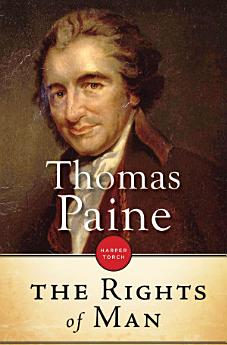The Rights Of Man
ഈ ഇ-ബുക്കിനെക്കുറിച്ച്
Originally published in two volumes in 1791 and 1792, Paine’s discourse reflected on the French Revolution, and positioned the uprising as an attack against a corrupt governing system, rather than a personal attack on the king himself. As a result of his arguments in favour of revolution and social welfare, Thomas Paine was tried and convicted of seditious libel against the Crown of England, and sentenced, in absentia, to hanging. Resident in France at the time of his British trial, Paine never returned to England.
HarperTorch brings great works of non-fiction and the dramatic arts to life in digital format, upholding the highest standards in ebook production and celebrating reading in all its forms. Look for more titles in the HarperTorch collection to build your digital library.
റേറ്റിംഗുകളും റിവ്യൂകളും
രചയിതാവിനെ കുറിച്ച്
English-born Thomas Paine left behind hearth and home for adventures on the high seas at nineteen. Upon returning to shore, he became a tax officer, and it was this job that inspired him to write The Case of the Officers of Excise in 1772. Paine then immigrated to Philadelphia, and in 1776 he published Common Sense, a defense of American independence from England. After returning to Europe, Paine wrote his famous Rights of Man as a response to criticism of the French Revolution. He was subsequently labeled as an outlaw, leading him to flee to France where he joined the National Convention. However, in 1793 Paine was imprisoned, and during this time he wrote the first part of The Age of Reason, an anti-church text which would go on to be his most famous work. After his release, Paine returned to America where he passed away in 1809.







